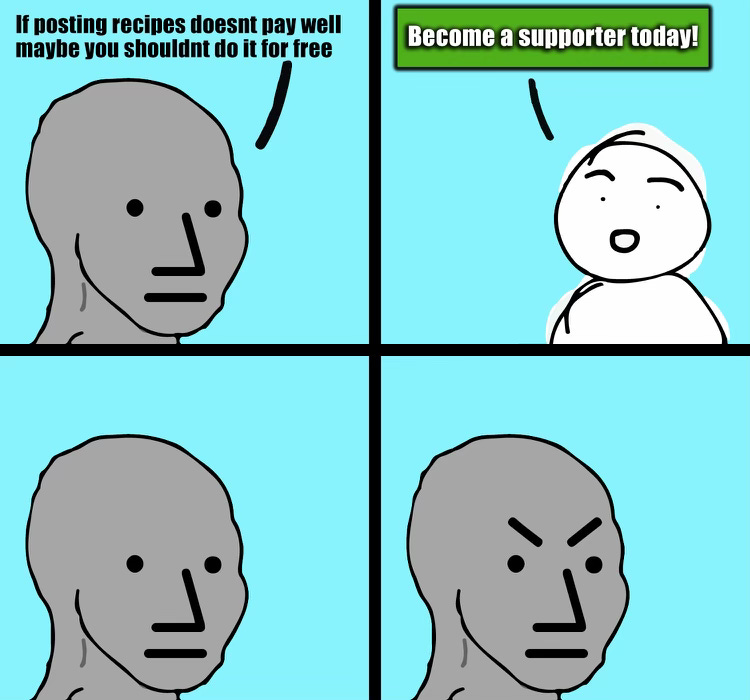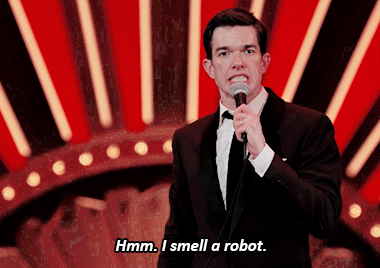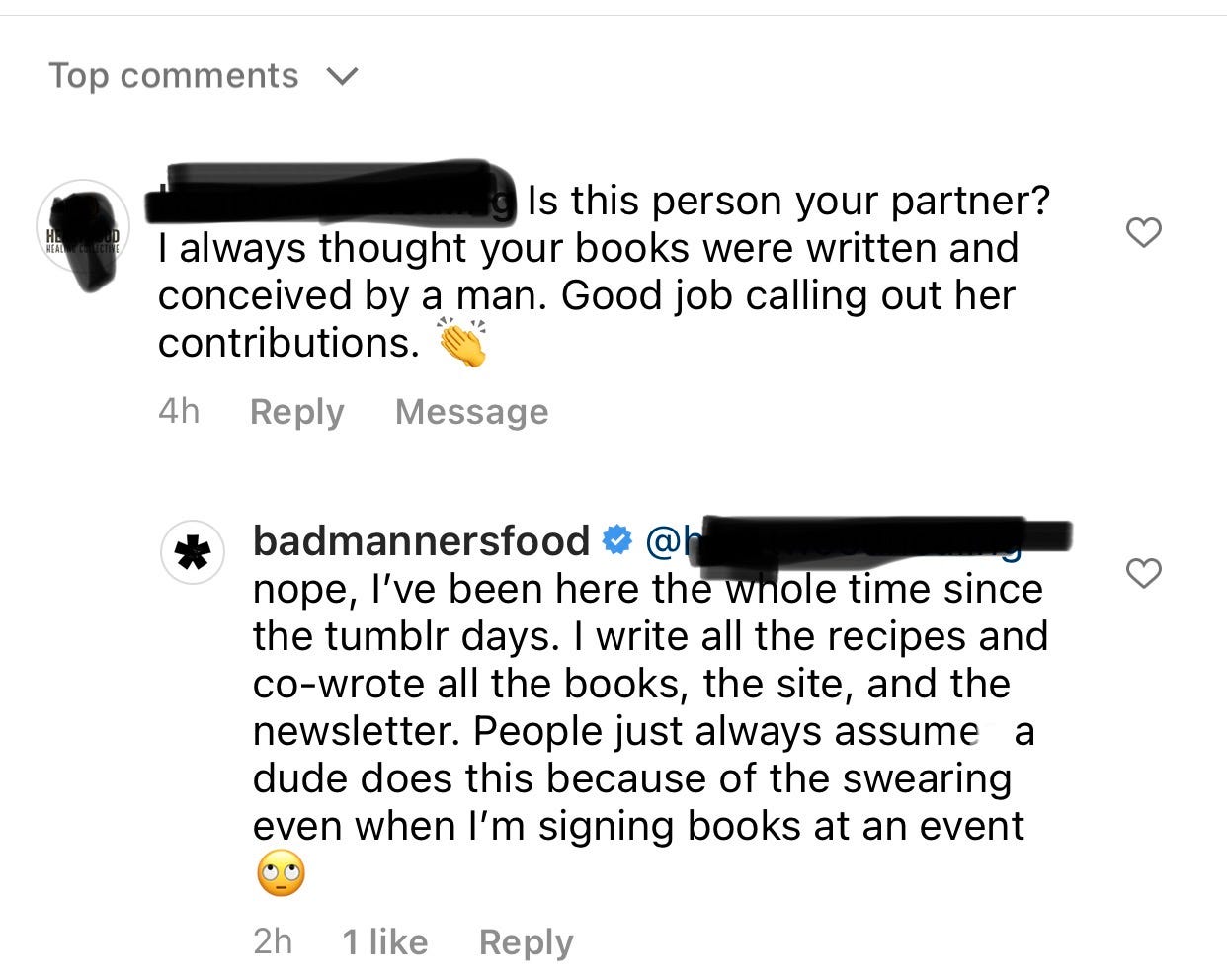Why Recipes Have a Wall of Text
hate the algorithm, not the blogger
The ubiquity of online recipes has revolutionized how people cook at home. No longer tethered to their 3 random cookbooks and ingenuity, people have grown accustomed to quick ideas and perfectly catered answers to the timeless question “what to cook for dinner”. So you’re searching for a recipe and find the perfect link BUT there’s a short novel that prefaces the ingredients and instructions. The charm of finding what you were looking for is overshadowed by these soliloquies causing many hungry people across the internet to lose their fucking minds. So why do food bloggers do this?

First and probably the most relevant, blame the algorithm. Search engine optimization (SEO) is a black box of metrics that points users to what the engine believes to be the most relevant results. Let’s say two food bloggers post a guacamole recipe at the same time and one is just the recipe and photo. Classic us. But the other recipe is prefaced with a long, winding story about the author’s memories of picking cilantro and ripe avocados from the farmer’s market with their grandmother. The latter will yield a higher- likely first- result when you search guacamole recipes. Why?
Well lots of digital content, recipes included, tend to get copied/pasted across multiple sites. Just look at how many places have posted our Roasted Chickpea and Broccoli Burrito recipe. Search engines do their best to filter out replicas and point to where they believe the original source is. Google calls this “appreciably similar” content and while not a perfect tool, the idea behind it makes sense. It’d suck ass if you worked hard to develop a recipe and hosted it on your site but when people googled it you were on page 3 of results while another site that re-posted your recipe was the top search result. They monopolize the traffic and ad dollars. Sure, they might credit you as their source and even post a link to your original content if you’re lucky but as we all know, you can’t pay your bills with exposure. Bloggers- if that’s still even the term- want to make sure their original recipe is clearly the first posting and their musings before the recipe only bolsters their case for the algorithm.
Another reason is that SEO rewards pages that users spend more time on. So if it takes people longer to find your recipe at the bottom of the page after reading through your prose then that page is more likely to populate on the first page of search results. Basically, everyone creating content online must appease our robot overlords or suffer in obscurity.
But it’s not just online. Cookbooks used to be purely instructional until the 1940s when more memoir style recipes began to rise to popularity. This was reinforced in the 90s with the rise of blogging and widespread access to not just the internet but different sites where people could build their own brand. Whether it was on Blogger, Tumblr, or even GeoCities, tons of people lept at the chance to share their thoughts and food with the world. Think of the difference in style between the seminal Joy of Cooking and Super Natural Cooking from the OG blogging queen Heidi Swanson. Both are classics but it’s clear that Heidi was ahead of the curve when it came to how important writing, photography, and general *vibiness* would become to recipes and food writing. She’s a legend for a reason. All of this has reached a fever pitch over the last decade and now every person and their dog is a brand and every meal is worth sharing with the world.
That’s all to say so many people’s entitlement to free content devoid of character or the personality of its creator is dumb as hell and under values real labor. The whole modern at-home cooking movement and food entertainment industry have both been built on the backs of people (mostly women) writing and cooking at home while sharing it with the world. Some of them have been lucky and talented enough to build an empire off their content and personalities. Whether it’s Ree Drummond, Joy Wilson, or Molly Yeh, the stories these cooks have shared with us are as much a cornerstone of their brands as the recipes they’ve developed.
These stories were how most bloggers generated income until recently. You’d help them make rent or at least buy groceries simply by scrolling down the wall of text and past the dozen or so ads on the page. The recipes were free but that wasn’t enough to keep the whiners at bay. Now that ad sales have all but collapsed for bloggers as media buyers moved all their ad dollars to social media (see Lisa Fain’s pivot on her much-beloved site The Homesick Texan for example) most online recipe developers have moved some if not all their content behind a paywall. Ourselves included.
So maybe next time you hear someone gripe about the long stories at the top of so many recipes, think about what they’re really saying. They want the labor of home cooks to be invisible and the fruits of that labor to be free. Another queen of the bloggin game, Deb Perelman of the impeccable Smitten Kitchen, perhaps put it best:

While we’ve never been ones to say too much about ourselves alongside our brand, that doesn't mean we don’t support all the people who do. We’re never run ads on our site in the 12 years we’ve been at this so we can def bitch about this common online complaint. Fuck, even when we try to talk about ourselves and our work, the labor of the female half of our team is constantly overlooked.
Damned if you do, damned if you don’t. So this Women's History Month, consider all the invisible and unpaid female labor you benefit from and maybe, just maybe, stop telling people to shut up and cook.
Want some solid recipes for a nominal subscription? Consider becoming one of our paid-supporters and get our Sunday edition delivered to your inbox each week with a brand new, exclusive recipe. Come for the food, stay for the memes.
Thanks again for joining us here in The Broiler Room. We’ll be back on our bullshit next week. See y’all then.
Michelle (and Matt)









I hadn't really thought about this much, despite at times getting annoyed with all the text (and aalll the photos). Thanks for sharing this perspective, it's good food for thought.